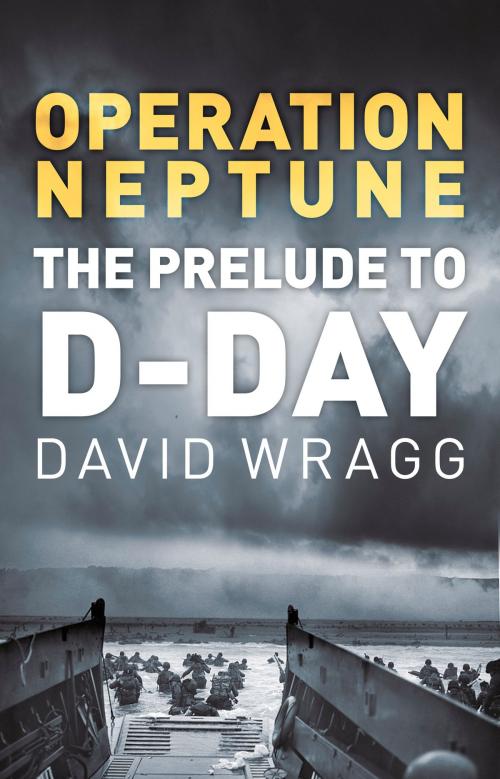| Author: | David Wragg | ISBN: | 9780750954815 |
| Publisher: | The History Press | Publication: | February 1, 2014 |
| Imprint: | The History Press | Language: | English |
| Author: | David Wragg |
| ISBN: | 9780750954815 |
| Publisher: | The History Press |
| Publication: | February 1, 2014 |
| Imprint: | The History Press |
| Language: | English |
One of the most ambitious amphibious operations to ever take place, the story of Operation Neptune is the story of D-Day at seaLong-awaited, the Normandy landings were the largest amphibious operation in history. Success was achieved by the advent of specialized landing craft, first seen in the landings in North Africa, heavy naval firepower, and the creation of two artificial harbors, each the size of the port of Dover, and an underwater pipeline. This book tells the story of this incredible feat using eyewitness accounts of the landings and the breaching of Hitler's famed "Atlantic Wall." David Wragg explores the earlier Allied and Axis experiences with amphibious operations and the planning for Neptune and Overlord. He reveals the naval support needed once the armies were ashore and before continental ports could be captured and cleared of mines, with operations such as minesweeping off the Normandy coast which led to one of the worst "friendly fire" incidents of the war.
One of the most ambitious amphibious operations to ever take place, the story of Operation Neptune is the story of D-Day at seaLong-awaited, the Normandy landings were the largest amphibious operation in history. Success was achieved by the advent of specialized landing craft, first seen in the landings in North Africa, heavy naval firepower, and the creation of two artificial harbors, each the size of the port of Dover, and an underwater pipeline. This book tells the story of this incredible feat using eyewitness accounts of the landings and the breaching of Hitler's famed "Atlantic Wall." David Wragg explores the earlier Allied and Axis experiences with amphibious operations and the planning for Neptune and Overlord. He reveals the naval support needed once the armies were ashore and before continental ports could be captured and cleared of mines, with operations such as minesweeping off the Normandy coast which led to one of the worst "friendly fire" incidents of the war.















